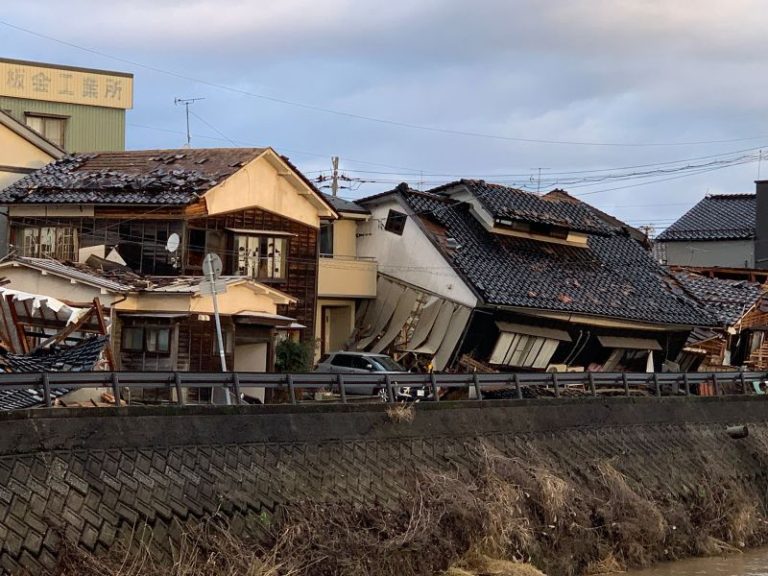The elderly woman emerged slowly on a stretcher, wrapped in blankets. Dazed but conscious, she thanked the firefighters, wearing helmets and headlamps, as they lifted her over the rubble of a collapsed house.
She’s a survivor of the deadly 7.5 magnitude quake that struck Japan on Monday, which devastated the formerly idyllic seaside city of Wajima, in hard-hit Ishikawa Prefecture.
In the city, once a popular tourist destination famous for its bustling morning market, firefighters and rescue workers worked through the night to find those still trapped or missing.
And while rescues like that of the woman, aged in her 80s, on Thursday provided glimmers of hope, the search grew increasingly desperate as the clock ticked, with at least 242 people still unaccounted for, according to the prefecture.
“The situation is terribly challenging, but until those 72 hours crucial for saving lives pass, we will do our utmost to save and rescue as many people as possible with everything we have on the ground,” said Prime Minister Fumio Kishida on Thursday.
The first 72 hours after a natural disaster are considered the “golden period” for finding survivors, as the condition of people trapped and injured can deteriorate quickly afterward.
In Suzu city, about an hour’s drive from Wajima across the battered Noto peninsula, video from Wednesday showed rescuers digging through the rubble of a collapsed house and carrying out a 79-year-old man covered in dust and dirt.
In the video, medical personnel quickly attended to the man as his daughter watched tearfully from the side, calling out to him. He was conscious and taken to hospital, according to TV Asahi.
But the search has been hindered by the sheer amount of destruction across the prefecture, as well as poor weather and constant aftershocks. Entire communities have been cut off by landslides and impassable roads; telecommunications also posed a problem, with phone lines, mobile masts and the internet down in many areas.
Roads were riven with enormous cracks, and littered with debris such as large boulders while the lack of signal meant no access to navigation apps or outside communication. By evening, it had turned rainy, foggy and dark with poor visibility – posing further challenges for rescue workers scrambling to locate survivors.
After the initial earthquake, a massive fire broke out in Wajima – leaving hundreds of buildings burned and blackened, and the famous morning market mostly reduced to rubble.
The scale of the rescue operation has meant personnel being dispatched from across the nation to Ishikawa – ranging from local officials and police to military troops.
The woman in her 80s rescued Thursday had been pulled out by firefighters sent from Osaka prefecture – hundreds of kilometers from Wajima.
A man had also been retrieved from the collapsed house before the woman, but was declared dead on the scene.
The quake has killed at least 92 people as of Friday morning, according to Ishikawa prefecture. And the little help getting through is far from enough, with water, food and blankets in short supply.
At a brief news conference on Thursday, Wajima city hall officials warned there are reports of people dying in evacuation centers – though they added the lack of communications means there’s no way to confirm the extent of damage or amount of aid needed in some cut-off locations.
Some evacuees are taking shelter in the city hall, sleeping on cardboard and mats. With no running water, sanitation problems are emerging — and the four-story building is running out of space, with families, pets and children huddled together on each floor.
These survivors are now reckoning with the aftermath, grieving those lost and trying to retrieve what they can.
“It’s hell – I’ve never seen anything like this. It’s my first time experiencing something like this,” said Kyoko Izumi, a liquor store owner in Wajima. “The aftershocks are really scary. They happened multiple times throughout the night … it felt like the entire ground was getting pushed up beneath me.”
“Looking at the state of this morning market, I don’t know if they can work or not, and it will take time to rebuild,” she said, gazing around at the scorched ruins.

